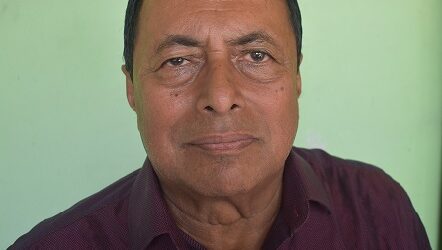Creating divisions to achieve consolidation of power: Are Rohingyas the victims of Tatmadaw’s Megalomaniac trait?
The Bangladesh The Bangladesh
Today

Qazi Fariha Iqbal : Rohingyas are considered as one of the most persecuted communities in the world. They have been simultaneously denied of their rights as human beings and citizens by the Military Junta of Myanmar. The history of Rohingya community can be traced back to the 15th century, when large number of Muslims poured in the region and settled down (Karim, 2020). Since then, thousands of Muslim settlers came and settled down inside the current Rakhine region. There are concrete evidences which prove the existence of Rohingya community as a conspicuous part of Myanmar’s multi-ethnic society. Despite such corroborations, Rohingyas are denied of their rights as the citizens of Myanmar. Moreover, they have been facing multi-faceted discrimination to avail their basic rights including education, employment opportunities, marriage, within their own homeland (Kipgen, 2019).
The rise of Military regime and systemic persecution of Rohingyas can be considered as two parallel developments inside Myanmar. The civilian government of U Nu was overthrown and replaced by the military regime led by General Ne Win in 1962 (Alam, 2019). The Military regime of Myanmar which is recognized as “Tatmadaw”, had applied the worst form of divisive policies to establish its legitimacy as ruling entity. In this context, the most notable step of the regime was to “define” and identify 135 indigenous groups of Myanmar by excluding Rohingyas (Alam, 2019) . It is noteworthy to mention that the U Nu government had recognized Rohingyas as ethnic community of then Burma and the legality of such recognition was backed by the “Citizenship Act 1948” (Alam, 2019). The introduction of 1982 Citizenship Law has legally contained the rights of Rohingyas as the citizens of Myanmar. Tatmadaw had effectively picked up and institutionalized an outdated denomination called, “taingyintha” (National races) to bar Rohingyas to avail their citizenship rights (Cheeseman , 2017). Moreover, the Rohingyas were subject to subsequent military atrocities conducted during 1970s and 1990s where massive violation of human rights was observed to satisfy the divisive policies of Tatmadaw. The recent military operation was conducted in 2017 which resulted into massive exodus of Rohingyas who took shelter inside Bangladesh. Since 1960s, the military regime was challenged by different ethnic armed groups which had thrown the country into a protracted-internal-crises. In this context, the military junta has taken the worst form of divisive policy to consolidate its foothold in the domestic front. Conspicuously, such divisive policies have led to the dire situation where the population of Myanmar remained less sympathetic towards the continuous persecution of ethnic minority like Rohingyas. More or less the framing of issues related with Rohingya community has been utilized as the “unifying” factor which visibly engineered and amalgamated the voices of former state counsellor Aung San Suu Kyi and General Min Aung. The ICJ case filed by Gambia, can be considered as the testing ground to observe such collaboration between two important stakeholders of the country. The unity is expressed through the unequivocal support of Suu Kyi to defend the Tatmadaw regarding the allegations of conducting genocide against the Rohingya minority (Albert & Maizland, 2020). In this context, NLD the ruling party and Tatmadaw collectively denied the human rights allegations against Rohingyas, despite large volume of evidences to prove otherwise. The megalomaniac trait of military has successfully corrupted the civilian government on the matter of handling Rohingya issue. Suu Kyi, a Nobel Peace Prize winner, has prioritized her own political survival over human rights violation of Rohingyas.
Ironically, the power-hungry Tatmadaw has reversed the country’s decade long endeavor of establishing civilian government by toppling the newly elected democratic government through a military coup in 2021 (Maizland, 2022). Since the military coup the country is thrown into another round of civilian protests and ethnic insurgencies, which are resulted into massive economic downturn and instability. The instability seems to cause certain level of consciousness among the rest of the population who have started to express their empathy towards the persecuted ethnic minority (Fishbein & Hlaing, 2021). Conspicuously, the protesters have shown the tendency to revisit their passiveness regarding the matter of persecuted Rohingyas and ethnic minorities in a pre-military coup situation (Fishbein & Hlaing, 2021). The latest development includes, the filing of criminal case against the atrocities committed by the military junta which is filed in Germany under the “principle of universal jurisdiction” by the members of ethnic minority communities including Rohingyas (Ratcliffe, 2023). Apparently, the post-coup situation may have created the background of unique collaboration among Rohingyas and other ethnic groups as the victims of common enemy.
While the gentle wind of reconciliation has started to blow at the domestic front, the military junta has continued to delay its response regarding the ICJ case proceedings related with the violation of 1948 Genocide Convention in case of Rohingya crisis. Gambia submitted a large volume of “memorial” during the case filing against Myanmar where Myanmar was supposed to provide a “counter-memorial” in response to the genocide evidences provided by Gambia (NewAge, 2023).
Qazi Fariha Iqbal is currently pursuing her MSS degree in Security Studies stream, Department of International Relations, University of Dhaka.




